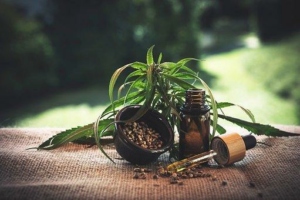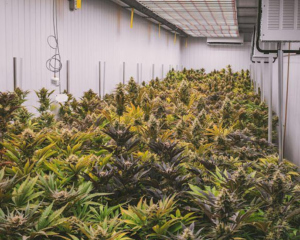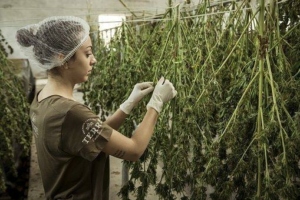One thing that all CBD businesses have in common is a sincere desire to assist their clients. What else would you do if you wanted to enter a small but expanding market? In other words, if you’re in the CBD business, you’re probably already concerned about offering the cleanest, arguably most organic goods possible. That concern for the biological systems probably extends to a concern for the environment.
You don’t have to worry if the thought of starting a CBD company is making your head spin. From the moment the hemp seeds are sown through the time your consumer utilizes the final product and discards the packaging, there are a few basic things you can do to guarantee that your merchandise doesn’t somehow accidentally damage the environment. Keep reading to see how CBD production companies can ensure business success.
Eco-Friendly Farming Techniques

Image Source: https://pixabay.com/photos/hemp-farm-cbd-6030161/
The hemp plant’s sustainability is one of the most acceptable engagements associated with the CBD sector. As a result of the plant’s inherent sustainability, hemp farmers don’t have to put in much effort to maintain their methods. Since hemp consumes half as much water as cotton, it’s a far better choice for the environment. Not only can hemp plants create CBD oil, but it could also be utilized to manufacture paper and clothes in a far more environmentally friendly way. So, by starting your own CBD firm, you encourage farmers to move to a more sustainable crop by boosting the market for hemp in general.
Hemp plants are not only less harmful to the environment, but they also enhance the soil in which they grow, often by eliminating poisons from it. This is because hemp can thrive in various environments, from deserts in the west to wetter climates on the east coast of the US. It’s because hemp plants have long, deep roots that assist in maintaining the ground surrounding them, reducing erosion while also helping to retain nutrients. Farmers may also avoid using dangerous chemicals and fertilizers on their crops since hemp is relatively sensitive to most pesticides and fungicides.
Ethical Distribution Commitment

Image Source: https://pixabay.com/photos/cbd-cannabidio-cbd-oil-hemp-oil-4469987/
After extracting CBD, it’s time to incorporate it into goods. The distribution aspect of the CBD company may be made more viable by concentrating on tinctures, CBD gummies, topicals, or all of the above. Consider your packing. How can you decrease non-recyclable waste? Can you place your tinctures and candies in glass containers or provide a package return program with a discount? Can you offer CBD bath bombs made of recyclable paper instead of plastic?
If your organization has a storefront, consider how you might make your operations eco-friendlier. Instead of printing menus and brochures, pin QR codes with links to your product offers. You might also encourage consumers to return empty containers so that you can sanitize and recycle them. There are methods to make your company viable if you fulfill and send orders often. You’ve probably heard of massive corporations like Amazon.com, Inc. going nonpolluting in their shipping procedures, and you can join in.
Shipping anything “carbon neutral” implies you (or the firm you ship through) are doing everything to offset the greenhouse gases, like planting trees. You may use UPS’s carbon-neutral delivery service or software such as Shop by Arrive to let your clients pick carbon-neutral shipping alternatives.
Extraction by Strategic Means

Image Source: https://pixabay.com/photos/cannabis-hemp-marijuana-6649379/
The potency within the marijuana plants may be harnessed and bottled for your clients’ use if you are conversant with CBD extraction processes. You may harvest CBD from the cannabis plant using carbon dioxide, enzymes, and even olive oil. When it comes to sustainability, “CO2” is typically a terrible word. After all, lowering carbon footprints is commonly mentioned when discussing a greener society. Despite its name, CO2 extraction is the most eco-friendly solution.
Because CO2 extraction creates the safest, cleanest CBD without hazardous residues, unlike solvent extraction, it doesn’t use up our precious olive oil. This procedure has one disadvantage: it needs specialized equipment and knowledge. If you want to build a sustainable CBD product, this investment is well worth it.
Key to Sustainability
Climate change challenges will not go away on their own; as company owners, we must actively seek to effect genuine change. The good news is that you can lower your carbon footprint and your CBD business. If you’re looking to buy CBD for yourself, you may consider buying from a firm that values the environment. Joy Organics is one of them. Their products are high quality, broad-spectrum, and third-party lab tested, so you know you’re receiving the best. Plus, you’ll be helping the hemp business, which may help solve the global climate catastrophe.
Organic Agriculture

Image Source: https://pixabay.com/photos/cannabis-hemp-chanvre-hanf-4688511/
Commercial agriculture may deplete soil nutrients, reduce water retention, damage symbiotic ecosystems, and stunt crop production over years of brutal, quick cultivation. Sustainability in plant and harvesting practices is the emphasis of regenerative farming. Soil damage caused by artificial fertilizers and pesticides must be repaired after harvest. Regenerative farming stops nutrients from being lost and strengthens the soil web. This reduces the need for synthetic fertilizers and harsh pesticides.
In Conclusion
Some cannabis farmers and manufacturers have started to adopt more eco-friendly procedures thanks to corporations setting an example. It also created a chart that allows CBD customers to evaluate the industry’s multiple product accreditation badges plus their meaning. For consumers, companies like the new Green Business Network CBD certification standard will help ensure that firms selling CBD products function in ways that benefit both people and the earth.


